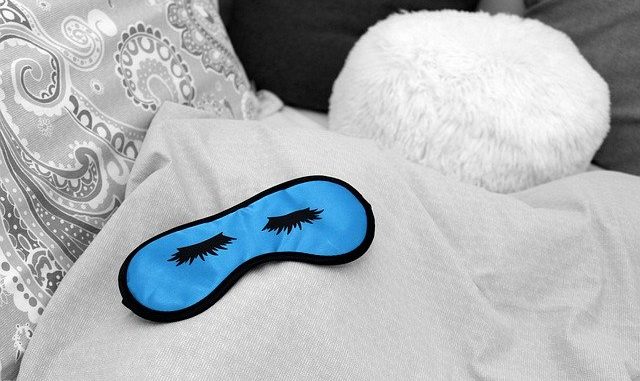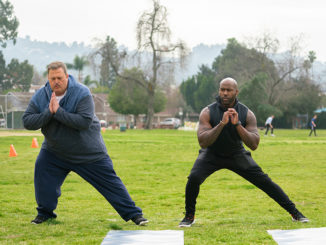
By Dolvett Quince
When was the last time you got a good night’s sleep? I’m talking about a full night’s rest, where you went to bed at the time you wanted to and woke up feeling refreshed. It seems that getting a good night’s sleep is rare these days. More often than not, we unintentionally bring the stresses of the day to bed with us. We’re all guilty of not being able to shut off our minds when we attempt to slumber. Or how about this one, taking our phones to bed, scrolling through social media, or watching silly videos? What seems like a couple of minutes turns into hours and next thing you know, you’re left with only a couple hours of sleep. These habits have a snowball effect and can take a toll on your ability to make healthy decisions as well as your body’s ability to function well. I’ve compiled a few of my favorite tricks and hacks for getting good night’s sleep, but before we dive into them, let’s talk about why getting a good night’s sleep is more than a luxury, it’s a necessity for your health.
Studies have shown a person should get around 7 to 9 hours of sleep to receive the full benefits, although exceptions exist based on age and health. Either way, getting an adequate amount of sleep is vital for both your mental and physical well-being. For mental health, sleep helps your brain function properly. Sleep deficiency will impair your ability to be attentive, make decisions, and is also linked to depression. When it comes to physical health, your body uses the time you are asleep to regulate and recover. Sleep deficiency has been linked to higher rates of obesity and can cause your hormones to be imbalanced. During sleep, your muscles are recovering; your immune system is regulating; even your heart and blood vessels use the time to heal. Needless to say, there are infinite reasons why sleep is crucial to your health, now let’s discuss my favorite tips to achieve that sleep.
5 Exercise
Make it a goal to workout at least 3 days a week. When you push yourself in a good workout session such as; weight training, cardio, or calisthenics your body will instinctually use sleep to recover. After a day of exercise, our bodies go into a deep, physically restorative sleep to repair muscle cells, support cardiac health, and regulate your hormones. So, challenge yourself to a strenuous workout at least 3 to 4 days a week or 30 minutes per day, and you are sure to have a good night’s sleep.
4 Sight and Sound
Our bodies are naturally programmed to sleep when it’s dark. In fact, light inhibits our bodies’ ability to produce melatonin, which is considered the “sleep hormone”. Melatonin is a natural hormone released by the pineal gland that tells us it’s time to go to sleep! The more light you have in your room when trying to fall asleep the harder it will be. One trick is getting blackout curtains that hide all the light from the outside into your bedroom, but artificial light can also affect us. Our bodies can detect light even through our eyelids. Make sure to turn off all lights and electronic devices with lights to ensure optimum melatonin production for sleep. Sounds can also affect your sleep quality. Our bodies can be jolted out of deep sleep by unexpected sounds throughout the night. Using a sound machine can actually cause the brain to go into a calming tranquil state. Many people find that using white noise such as spa music, or rain forest sounds can help them with the transition into a deep sleep.
3 Put Electronics Away
Keep all electronics off and in their proper place. Plug your phone in across the room and away from your head. If you use your phone as an alarm put the phone on the ground next to your bed. This will help with buzzing sounds and flashing lights that tend to distract us. If your phone is turned down you’re less likely to grab it as a distraction so, keep your phone as far away from your bedside as possible.Turn the TV off too. The blue light emitted from your TV or laptop will interrupt your body’s natural circadian rhythm and delay your ability to fall asleep. Same as the scenario in tip #4 above, turn off these devices so your body can know that it’s time to sleep.
2 What are you sleeping on?
When was the last time you updated your mattress? Updating your mattress will help immensely. The first step to a great mattress is understanding your comfort preference; do you prefer firm, soft, or a medium mattress? Discovering your mattress preference can make a huge difference in your sleep quality. Do your research online, but also visit local mattress stores and speak with the experts to see which mattress type works best for you. Also, consider your pillows. Do your pillows provide proper support for your head and spine? Do you find that you wake up with tightness in your neck or lower back? Perhaps your pillow is the source of this agony. Make an investment by finding the right mattress and pillow that suits your sleep preferences and this alone can change your sleep quality, which can ultimately add years to your life.
1 Set your alarm clock for bedtime.
This may sound ironic, however, we shouldn’t only use our alarm clocks to wake us up, we should also use them as a tool to remind us that it’s time to go to bed. One of the most important ways to ensure you get an adequate amount of sleep is to be insistent about your bedtime and create healthy habits. You can train your body to rest and recover based on your terms. Remember it may not be an easy adjustment. Try to keep your habits the same on weekdays and weekends, as sleeping in on your weekends can throw off the habits you develop throughout the week. Practice going to bed, even if you’re not tired. Use tips #1-#4 to help make falling asleep a smoother process. Close your eyes, rest your mind. Listen to your breath and sleep.

Social Media https://www.facebook.com/dolvett




